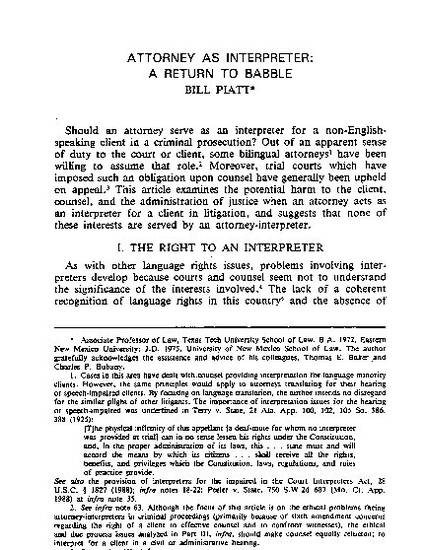
Attorneys should not represent their clients and simultaneously act as interpreters. The harm far outweighs the benefit when an attorney acts as an interpreter for a client in litigation. In 1970, the Second Circuit Court of Appeals in Negron v. New York determined that the Sixth Amendment's confrontation clause requires that non-English speaking defendants be informed of their right to simultaneous interpretation of proceedings at the government's expense, however the use of an interpreter is still at the trial court's discretion.
Courts will ordinarily not appoint an interpreter in the absence of a request to do so, but the failure of an attorney to request an interpreter for a qualifying client has been held to constitute ineffective assistance of counsel. Similarly, the failure to appoint a separate interpreter, when a bilingual interpreter will not fulfill the needs, violates due process. Problems arise for the attorney as a translator as well because it is impossible for counsel to cross-examine witnesses, listen attentively to testimony, hear remarks of the judge, and simultaneously render an accurate translation of the proceeding to the client. It is unfair to the client when his or her attorney must serve as interpreter in court. If attorneys continue to interpret for clients, those clients will effectively be forced to defend themselves in an adversary system without an advocate or to observe helplessly while a babble of voices strips them of their liberty and property.
